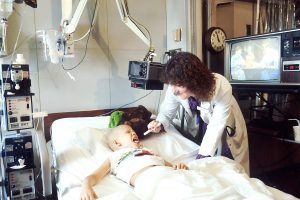Registered nurses and nurse practitioners may sound like similar job titles, but there are lots of fundamental differences between the two roles. From compensation to job duties, the two are not quite interchangeable.
Before you enroll in the correct nursing program, see how the scope of work differs for registered nurses and nurse practitioners.
What Is a Registered Nurse (RN)?
RNs are present in almost every healthcare institution. No matter how small the clinic is, it is certain to have at least one RN working. RNs provide direct care to patients.
They are front-line workers to directly oversee the conditions of in-hospital patients. Whatever requests a patient may have, RNs are here to listen and either handle the request themselves or pass it on to someone from the upper level.
RNs administrate doses of prescribed medicines and monitor patients’ vitals. Depending on the ward or institution they work in, there will be other responsibilities as well.
Usually, all the personal work, like drawing blood and urine samples, charting their daily conditions, and communicating with the patient’s family, are all part of the daily routine for an RN.
What Is a Nurse Practitioner (NP)?
While NPs are still majorly present in most medical institutions, they are slightly less common than having RNs in some small-scale clinics. An NP is in charge of cross-analyzing patients’ medical records, diagnosing illnesses, assisting with treatments, discussing patients about their conditions, etc.
NPs have to communicate frequently with doctors and therapists to design the best treatment plans for specific patients. The exact role will depend on the department the NP is in.
There are fewer NPs available than RNs. NPs have the profound medical knowledge to be in charge of making treatment plans for patients with complications. That’s why they are often required to make the decision.
What Are The Differences In Job Responsibilities?
Essentially, RNs are the executors, while NPs are the decision-makers. RNs carry out commands to immediately relieve the pain of patients. Whenever a patient is not feeling well, they have to take action to remedy the situation.
They are also the executors of healthcare instructions. When the patient is ordered to stay away from certain elements, such as food items, RNs have to make sure the patient has no access to these elements that could trigger their condition.
NPs take on the macro picture to oversee the overall performance of a patient. They evaluate the patient’s medical needs and prescribe appropriate doses. In some cases, NPs have to observe RNs to make sure the tasks are carried out correctly.
They both work together and independently for the welfare of patients. NPs are not always present in every medical facility. There are usually NPs in bigger departments like public hospitals, intensive care units, pediatric care, etc.
To sum up, RNs are the faces to give direct care to patients and relay their medical needs to other healthcare professionals. NPs take a step back to manage the whole process to ensure patients are getting the care they need.
How To Become a Registered Nurse?
Nursing programs for RNs are readily available. Most colleges offering healthcare-related programs will usually have one for this. Some hospitals and research institutions with more budget and resources will have their own nursing schools to train registered nurses.
You don’t have to go to university. The program lasts two to four years. A bachelor’s degree will last for four years, while other nursing programs last two.
During this time, you will learn both theoretical and practical knowledge of being an RN. You will have hundreds of clinical hours in placement. Completing the hours is a must to graduate. Students are also required to write a thesis on any chosen topic related to their placement.
The entry requirement for this nursing program varies. For well-established universities, you will face fierce competition to get a seat in their bachelor’s program. But if you are enrolling in a nursing program offered by a medical institution, it tends to be easier with a higher program cost.
They provide comprehensive training to any passionate candidate. As long as you possess basic scientific knowledge and a passion for helping, you are almost guaranteed to get into a nursing school, even if it may be a small-scale one.
Each nursing school sets its intake bar, so you need to refer to the specific program to see what tests you have to take.
How To Become a Nurse Practitioner?
Being an NP takes years of experience. You need to possess either a master’s or a doctoral degree. After getting a basic bachelor’s degree, you can either further your studies immediately or work as an RN for a few years to gain experience. Either way, you need to have extensive knowledge of patient care to graduate.
Nursing programs to become an NP are costly. They can cost double or triple your RN degree in the same institution. Without proper financial support, pursuing a degree can be challenging for many.
Some hospitals may pay for existing staff with outstanding performance to study in exchange for a work contract after graduation. These opportunities depend on the facility. If this is your intended path, you should inquire about it before taking up a job.
Obtaining a degree in this field is tremendously hard. Since NPs can get a patient’s fate by authorizing their treatment plans, the requirements to pass nursing school are high. They will be asked in-depth questions in formulating treatment plans and appropriate measures to take in emergencies.
Gaining experience before continuing your studies is a common approach for most NPs. Through work, they can learn to deal with more situations. It facilitates their future essays in grad school.
It is safe to say that the majority of NPs once worked as RNs, which explains why most of them work well together. They understand each other’s tasks. NPs and RNs have to work closely together to maximize efficiency.
How Is The Salary Different?
Since NPs are much harder to come by, the salary is expectedly a lot higher than RNs. This is why most small clinics and medical facilities will not be able to afford an NP. For RNs, the average salary in the US is $77,000 per year, with a big pay gap between states.
Some states such as Massachusetts, have a much higher salary mean at $94,000, whereas states like Louisiana and Kentucky perform poorly at around $63,000. Most of the time, the salary is adjusted according to the state’s economic level and general cost of living.
Therefore, it is hard to judge if a salary is good based on the number. You could be getting a higher salary in one state but end up having fewer savings due to the high living costs.
For NPs, the average salary falls at around $120,000 per year. Again, the wage gap is significant between states. The differences are more prominent for NP jobs. It fluctuates periodically.
States like California can have an average salary of $150,000, while other states like Arkansas only pay around $100,000. In most situations, the salary corresponds to the local living cost positively. Workers are well-compensated for and still make above average than most other jobs.
Regardless of which state you work in, it is always a fact that an NP will make more money than an RN in the same institution.
Career Prospects For Registered Nurses And Nurse Practitioners
In terms of promotion opportunities, both RNs and NPs have a good chance of progressing throughout the years. They will be covering more delicate aspects at the management level. However, NPs do have an advantage in having better opportunities.
Due to their training and medical background, NPs are usually more capable of handling complex cases and more resourceful in finding solutions.
Their medical knowledge gives them an edge in transitioning to non-frontline work, such as working in management or other departments in the hospitals. They possess relevant degrees to make it up the ladder.
It would be harder for RNs to achieve the same without taking up another degree. Their skills are not quite transferable without an additional degree. Therefore, their promotion opportunity will be capped once they become the supervisor of their team.
It almost never happens for an RN to overpower an NP. Although they work together, NPs do have a say in the final decision and have more power if there is ever a dispute.
Summary
Whether being an RN or an NP is right for you is personal; it depends on many factors. You should research nursing schools in your desired area and the doors they open for you. Consider important criteria such as money and time cost. After comparing the two paths, you can make a rational decision that maximizes your benefit.
Ultimately, both registered nurses and nurse practitioners are here to serve people. Their duties make the world a better place. No matter which one you choose to pursue, you should be incredibly proud of yourself.













